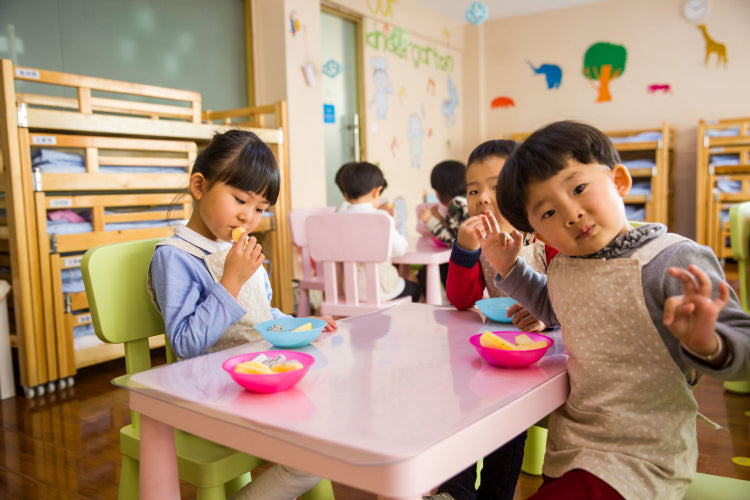
For many children (and their parents), preschool is the first stretch into independence. That alone can make the process of finding a school that’s a good fit a little nerve-wracking. And the first day of school? Well, sometimes it’s hard to tell who is more nervous, the new student or their grown-ups! When your child has food allergies, the nervousness may be cranked up another notch. If you’re an allergic parent or guardian, these tips may help put your mind at ease.
Do Your Research
Unless your child is eligible for a pre-K program through the public school district, you’ll be selecting a school from the local private preschools operating in your area. This is your opportunity to choose the program that best fits your family’s needs. Is it in your budget? Does the teaching style mesh with your child’s personality and your idea of appropriate early childhood instruction?
Allergy families will also want to learn about how each school they’re considering handles food allergies. Are they familiar with food allergies? Do they have other allergic students attending? How will substitutes be informed about allergic students? Who is allowed to administer your child’s auto-injector? Is staff trained on how to use an auto-injector and how to keep allergic children safe? Are there lesson plans that involve food and, if so, what’s the policy regarding allergic children in those lessons? Come up with your list of questions and get answers during your site visits and calls. Talk to other parents for input, too!
Get It in Writing
If a preschool program receives federal funding, allergic students can request a 504 Plan – a legal document that will delineate the appropriate accommodations the school will take to keep your allergic safe. If you’ve selected a private program, you can still request a written action plan. Work with your allergist to determine what accommodations your child requires. The school may also require you to fill out and have your allergist sign an allergy action plan and paperwork that will allow them to keep your child’s autoinjector on site, as well as administer the epinephrine if needed.
Think Beyond Snack Time and Parties
When we think about food allergies, snacks and parties quickly come to mind as potential minefields. When we talk with school staff about making a plan to keep our young students safe, we can focus so specifically on those items that we lose sight of the other potential risks. Here are a few things to talk to your allergist and pre-K director about:
- Handwashing / Surface Cleaning – If you’ve got young children, you probably use phrases like “please take your hands out of your mouth” and “use a tissue” quite frequently. Of course, we know the hygiene value of this advice. For food allergic children, however, it’s even more important as trace levels of allergens can be left on surfaces and transfer to hands. Touch those hands to your mouth, nose, or eyes and those allergen proteins can trigger a reaction. When you’re working on an allergy management plan with your child’s preschool, don’t overlook the importance of handwashing after eating (for the whole class), as well as wiping down tables and other surfaces that have come in contact with food items.
- Arts & Crafts – Food allergens can be present in non-food items. Wheat may be present in play dough. Egg may be found in tempura paints and milk can be an ingredient in dustless chalk. These are just some examples. Work with your child’s school and classroom teacher to identify which arts and crafts supplies may be an issue for allergic children and what products may be a safe substitute.
- Sensory, Learning and Imagination Stations – From “igloos” made of empty milk cartons to sensory stations that use raw pasta and counting corners that make use of small food items, preschool classrooms can make great use of food and empty food containers. This can be a problem for food allergic children. When you’re talking with your child’s school, highlight these potential allergic challenges and work together to identify an alternative solution. This list from Kids with Food Allergies is a good starting place.
It’s Not One and Done
Remember, your child’s school – now and throughout their educational career – is your partner. From academics to allergies, you’re in this together. Getting an allergy action plan in place is just the first step.
Look for appropriate touchpoints and opportunities during the year to engage your child’s teacher. Are action plan items you’ve put in place working? Does the system you’ve devised need to be updated? Was there something your team overlooked in the initial stages that should be added now? Don’t overlook the importance of good note sharing, also. Has someone gone above and beyond to keep your allergic child safe? Reach out and say thank you! This is a team effort and it’s good to let your team members know you appreciate them.
